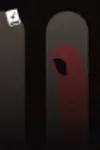
Bronwyn
This was a really good collection of essays. Some I enjoyed more than others. I struggled through the Ibsen essays as I'm not familiar with his works, but the Brontes, Zelda, and Woolf were very good. The last chapter, the titular essay, was really interesting too. (So many seduced young women who, of course get pregnant from the seduction.) I've struggled reading other Hardwick before, but now I feel like I should give her fiction another chance.
Man, this was so beautiful and frustrating. The writing is so well done, so evocative. The build up to the last chapter.. The framing device was interesting and the epilogue was such a great end. Leo was so hard to have as a narrator sometimes though! He's so naive and it's hard to watch sometimes. Marian is so frustrating, using Leo how she does, but in the epilogue he finally sees it... and doesn't do anything different. It's such an interesting look at how one instance can alter our lives. I only wish I hadn't watched an adaptation a few years ago, I think it would've hit harder.
I don't remember where I first heard of this (probably in one of my books about 1920/the 20s), but once I read that it's where the term “robot” came from, I had to read it. I didn't realize it was a play!
This was really good and I'm surprised it hasn't really been adapted yet (it has adaptations, but nothing big) as it has so many elements that are popular - the creation of the robots, the over reliance on them, their uprising, the last man trying to save it all... What a story.
This is another I heard of from Monster, She Wrote. Another that's not really my thing, but that I thought I'd try. I'm glad I did. While these stories (When Darkness Loves Us and Beauty Is...) were really bizarre and the title story is pretty messed up, the writing is gorgeous and evocative. Engstrom really knows how to tell a story.
Since watching Shiny Happy People, I've gone down a bit of a fundie rabbit hole. I've been binging the Leaving Eden podcast and it's been fascinating. So when I read an interview with Jon Ward, I knew I'd want to read this book.
It's really interesting. It's as much about his deconversion as about the failures of Evangelicalism; they're so entwined in many ways. Ward's being brought up to take over in his church, and then working in journalism for decades, makes him the perfect person to talk about how this (gestures around) all happened. Really interesting stuff.
This was a really good mystery. I kept thinking I'd figured it out and then, nope! It was great. Elma was such a good detective too. I didn't love some of the misdirection, especially when it wasn't relevant, but that's a mystery for you. I could see reading more of this series.
(This was also particularly good for me in that I'd been to Akranes in 2007. I remembered a couple of the places talked about and have a book I could pull out to look at other things. I liked that a lot.)
What a weird little book. I feel like there's a lot I'm not really understanding - it feels very Japanese - but there's good too. Three stars seems harsh, but four is too generous. Keiko is odd and trying to fit in, but learns to accept who she is. I wish she'd gotten there differently, but sometimes we need to be shaken up to realize what we have, who we are.
This was very good. Jenkins' writing and descriptions are just lovely. Everyone felt very real. I didn't really like any of the main trio though. I had sympathy for Imogen, but she's so passive (and I get it. She's a woman of a certain time and place, just... hard to watch). Evelyn is pretty horrible all around. Blanche is another sort of woman and takes advantage of that. I'm glad I read this, and I'll definitely read more Jenkins, but I need a break from books about infidelity/broken marriages. (It won't happen - it's a common theme - but I can dream.)
I first saw this book about a decade ago. I was working at The Henry Ford, browsing the gift shop, and it sounded interesting. It also seemed to have no connection to THF, so I was confused why they had it. I didn't buy it then, but remembered it and finally bought it a few years later.
I didn't have to wait long to find out why THF carried it - the Benson Ford Research Center is mentioned in the acknowledgments. More of why THF is relevant is found out at the end of the last chapter - THF purchased a collection of Eva's things. Mystery solved. On to the book.
This was really interesting. Eva had a fascinating life and influenced so much. It's a pity she's not more well known, considering her popularity in the early decades of the twentieth century. However, she also seemed incredibly difficult. I can see why she couldn't cope with the changing world, and unfortunately that led to her being forgotten relatively quickly.
If you're interested in show biz, early twentieth century history, women, etc., you'll enjoy this book. Eva should be more well known and hopefully this book will help, even a little.
Review to come once I've thought about it more. Rounding up to four stars at the moment, though we'll see. Hmm.
Alright. This was fine. I'll keep it at four stars because I would recommend it. I feel like this book just suffers because I'm reading it sixty years after it was published. Some old books suffer because newer books or movies have done the same/similar premise and so feel... less inventive as a result. This isn't a bad book at all. Some of the writing is gorgeous. It just fell a bit flat because I felt a bit like I knew it already.
Holy cow, this was so good. It took me a minute to get the hang of the format and Miles/Pronto, but once I got settled it just read so quick and well. The characters are all so well drawn; everyone felt real but also felt like they were being written down by Miles (or some third person in him). Edmee and William and Caroline. Ludovic. Miles himself. I loved this.
I recently read The Feast, which was my first Kennedy, and knew I needed to read more and I'm so glad to have read this. I'll definitely have to pick up The Constant Nymph soon.
A weak four stars, but three seemed harsh. I did like this, but it just felt very fluffy. Jane seemed a little... stunted? Like always with the poetry quotes. I know it was to show her having regrets about post-Oxford life, but it just didn't work for me. I liked Prudence a lot though. She felt much more realistic. The transitions felt weird too, maybe just dated? Like, “Jane wondered what Prudence was doing. Prudence was doing X.” I'll still definitely read more Pym as I have a bunch on kindle and they are light and easy, which is needed sometimes, but I'm not sure if she'll ever be a favorite.
Man, if you're a fan of the show Poirot at all, you'll love this. I teared up multiple times, starting with the prologue. David Suchet gave such amazing background and insights into the show and production. I loved finding out why the show aired the way it did (and how precarious it was sometimes), why certain decisions were made, why the Granada episodes felt different than the ITV episodes. I loved how much Suchet loved Poirot as soon as he accepted the job, despite not having been familiar beforehand. This was such a fun read and now I want to go and rewatch all the episodes.
This was really good! It's hard to rate though and this is a time I wish goodreads did half stars; it's better than four stars but something was lacking for me to give five. Four feels better right now. I think if I'd read this at a slightly different time it could have been five stars though.
I did love this though. The setting and the characters were all so well done. (It did take a while to keep track of everyone though.) I know of the seven deadly sins thing, but didn't really try and figure out who's who (though some are easier to tell than others). Overall really good and I look forward to more Kennedy as the writing is really lovely.
While I wasn't as charmed by this one as I was by Our Spoons Came From Woolworths, this was very good - Comyns is very good. I read the fairy tale before reading this, just in case (I read this one: https://fairytalez.com/the-juniper-tree/), and I'm glad I did as it did help at points, but I don't think you'd really miss anything if you didn't read the story first; it was more just sort of looking for Easter eggs in the book than anything.
Bella was a bit prickly of a protagonist, always understandably, but it made it hard at times. I wanted more of some of the other characters (Stephen, Mary, Peter), but can't complain about what we did get.
This took me a long time to read because I originally tried to read it straight through and burned out. That said, this is a really interesting book of books from the Golden Age of mystery. My tbr list has grown so much. Edwards, of course, knows very much of what he speaks and this is incredibly comprehensive. Highly recommended, just dip in and out more than I initially did.
What a bizarre book. I don't know that I liked it, but it's interesting. I'm glad the afterword touched on the possible madness of Shirley because about halfway through I was convinced this was all a delusion. I'm not quite sure how this is somehow feminist other than Shirley is unapologetic in her affair/s. She's still so wrapped up in Coenraad and doesn't really know what to do without him... What a weird book.
I found this randomly at HPB a while ago. They had an end cap full (probably remainders) and it sounded right up my alley. This was so fascinating and such good scholarship (so many citations! Makes my history heart happy!). I loved reading about late 18th-early 19th century New England through Charity and Sylvia's relationship. This is so much more though. Cleves touches on early American education, business, religion, law, and so much more in telling this story. I wish it was a bit more chronological rather than thematic, but the story did move on well. Such a good history.
I read this on kindle in Library of America's Women Crime Writers of the 1940s. I had questions about certain things in the text though, so also borrowed this NYRB edition from the library, so am reviewing it singly here.
I wasn't sure what to think of this. It read quickly and I didn't like Dix, but I had really liked The Expendable Man and... expected more I guess? The afterword to this edition though helped me make better sense of it all. You couldn't have the afterword as a sort of introduction, but I do wish I'd had more context going in. I'll be generous and give it the benefit of the afterword and go with four stars. I'll still try more Hughes I'm sure.

















































